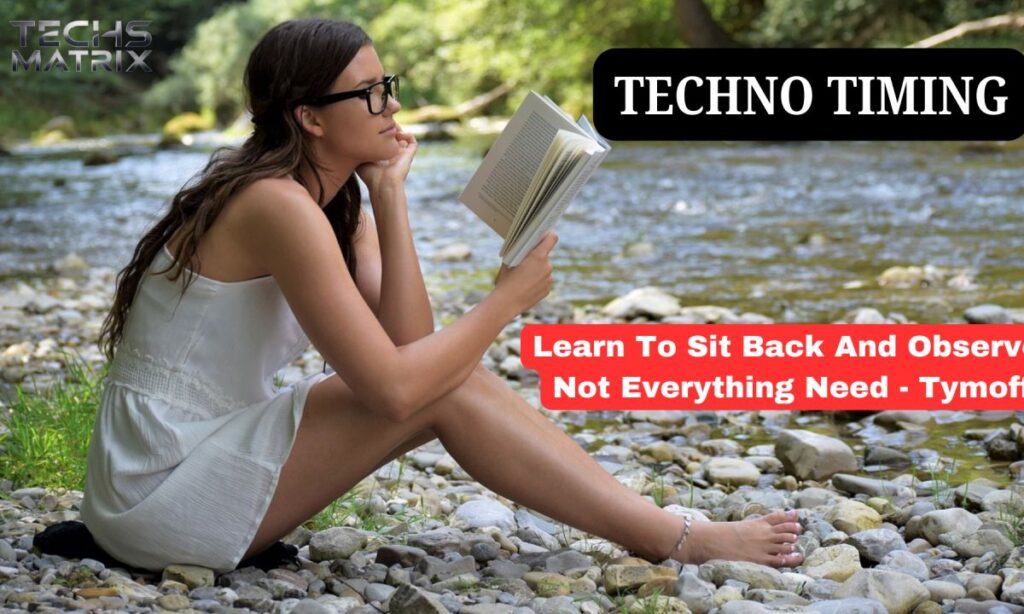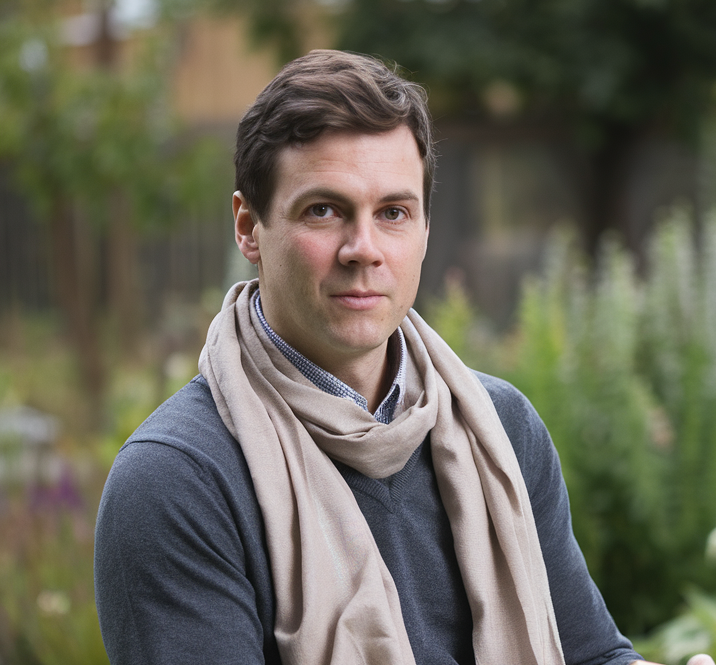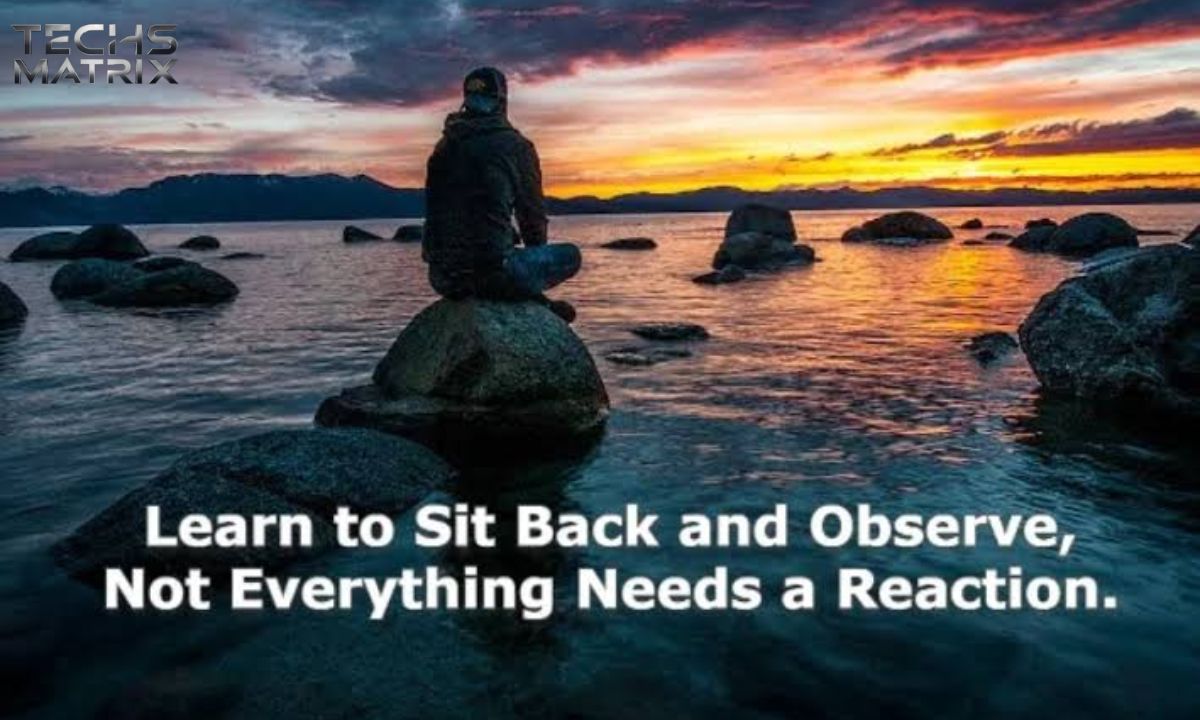Learn to Sit Back emphasizes the importance of taking a moment to reflect before reacting. In a fast-paced world, we often rush to respond, which can lead to misunderstandings and impulsive decisions. By observing situations thoughtfully, we gain clarity and improve our emotional intelligence, allowing for more considered and effective responses.
This practice fosters patience and mindfulness, helping us to navigate conflicts and challenges with greater ease. Embracing the mindset of observation can enhance our decision-making and ultimately lead to more meaningful connections in our personal and professional lives.
The Importance of Taking Time Off
Taking time off is essential for mental health. It allows us to recharge and gain perspective. In a society that glorifies constant productivity, we often forget to pause. By stepping back, we create space for reflection. This practice can significantly enhance our overall well-being.
Taking breaks helps reduce stress. When we are constantly on the go, our minds can become overwhelmed. A break allows us to reset. It helps us to clear our thoughts and emotions. This clarity is crucial for making informed decisions.
Moreover, time off can foster creativity. When we allow ourselves to relax, new ideas often emerge. This is when we can think outside the box. Creativity thrives in a relaxed state of mind.
The Power of Observation
Observation is a powerful tool. It allows us to understand situations more deeply. When we take the time to observe, we gather valuable information. This information can be critical for making decisions.
Learning to sit back and observe means being present. It requires mindfulness. By focusing on the here and now, we can appreciate the nuances of our surroundings. This practice enhances our emotional intelligence.
Observation also helps us manage our emotions. By observing our feelings without reacting, we gain control. This control enables us to respond thoughtfully rather than impulsively. Hence, “learn to sit back and observe. Not everything need – Tymoff” becomes a guiding principle.
Not Everything Needs an Immediate Reaction

In many situations, a quick reaction can lead to misunderstandings. Not everything requires an immediate response. Taking a moment to consider the context can be beneficial. For instance, during conflicts, pausing can diffuse tension.
Instead of reacting in anger, we can choose to listen. This approach fosters constructive dialogue. It opens the door to resolution. In the digital age, reactions are often instantaneous. Social media encourages quick responses.
However, this can lead to miscommunication. By taking time to reflect, we can engage more meaningfully. Recognizing that some situations do not need a reaction is empowering. It allows us to choose when and how to respond. This choice reflects maturity and wisdom.
Read This Blog: 5StarsStocks.com: Your Trusted Guide in the World of Stock Market Investing
The Benefits of Reflection
The Benefits of Reflection are numerous and impactful for personal growth and well-being. Reflection allows individuals to process their experiences, helping them learn from successes and failures.
By taking time to think critically about past actions and decisions, one can gain valuable insights that inform future choices, leading to improved decision-making. Additionally, reflection promotes self-awareness, enabling individuals to understand their emotions and motivations better.
This heightened awareness fosters emotional intelligence and resilience, making it easier to navigate challenges. Overall, regular reflection enhances clarity, encourages gratitude, and supports continuous personal development.
Making Better Decisions
Better decision-making stems from observation and reflection. When we observe a situation, we gather information. This information is crucial for analyzing our options. Taking time to reflect on our choices allows for deeper understanding.
We can weigh the pros and cons more effectively. This practice reduces the likelihood of making impulsive decisions. Furthermore, better decisions lead to improved outcomes. When we act thoughtfully, we are more likely to achieve our goals.
This success reinforces the value of observation. Incorporating the mindset of “learn to sit back and observe. Not everything need – Tymoff” can transform our approach to decision-making. It encourages patience and consideration.
Cultivating a Peaceful State of Mind
A peaceful mind is essential for happiness. Cultivating this state requires intentional effort. Observation and reflection can significantly contribute to inner peace. Practicing mindfulness allows us to remain present. This presence helps reduce anxiety about the future.
When we focus on the moment, worries diminish. This shift promotes tranquility. Additionally, engaging in activities that promote calmness can be beneficial. Activities such as meditation, yoga, or spending time in nature foster serenity.
These practices encourage us to sit back and observe our thoughts and feelings. Creating a peaceful environment also supports this mindset. Surrounding ourselves with calming elements promotes relaxation. This environment encourages us to take a step back and reflect.
Incorporating Patience into Daily Life

Patience is a virtue we often overlook. In a world that demands instant results, cultivating patience is essential. Learning to sit back and observe requires practice. One way to develop patience is through mindfulness exercises. These practices teach us to slow down and appreciate the moment.
By focusing on our breath or surroundings, we can cultivate a sense of calm. Setting realistic expectations can also enhance patience. Understanding that not everything happens immediately allows us to adjust our mindset. This adjustment helps us to remain composed in challenging situations.
Moreover, practicing gratitude fosters patience. When we appreciate what we have, we become less focused on what we lack. This shift in perspective encourages us to wait for the right moments.
Read This Blog: Ultimate Guide to Sheds in London: Choosing the Perfect One for Your Home
Embracing Imperfection
Embracing imperfection is a critical aspect of personal growth. We often strive for perfection, which can lead to frustration. Learning to sit back and observe allows us to accept our flaws. Recognizing that mistakes are part of the journey fosters resilience.
Instead of dwelling on failures, we can learn from them. This mindset encourages growth and adaptability. Moreover, embracing imperfection promotes self-compassion. When we accept our shortcomings, we become kinder to ourselves.
This kindness is essential for mental well-being. In relationships, accepting imperfections in others fosters deeper connections. It allows for authenticity and vulnerability. This acceptance creates a safe space for open communication.
The Role of Gratitude
Gratitude plays a crucial role in our lives. It shifts our focus from what we lack to what we have. This shift is empowering and promotes a positive mindset. Practicing gratitude enhances our overall well-being. It encourages us to observe the good in our lives.
When we take time to reflect on our blessings, we cultivate happiness. Moreover, gratitude improves our relationships. Expressing appreciation strengthens bonds. It fosters a sense of connection and belonging.
Incorporating gratitude into our daily routines can be transformative. Simple practices, such as keeping a gratitude journal, can enhance our outlook. This practice encourages us to sit back and observe our lives with appreciation.
Frequently Asked Questions
What does it mean to sit back and observe?
It means taking time to reflect on a situation before reacting, allowing for better understanding and decision-making.
How can observation improve decision-making?
By gathering information and considering all aspects before acting, observation leads to more thoughtful and informed choices.
Why is patience important in daily life?
Patience helps reduce stress and promotes calmness, allowing us to respond thoughtfully rather than impulsively.
How can gratitude impact my mindset?
Gratitude shifts focus from negativity to positivity, fostering a happier and more fulfilled perspective on life.
What are some ways to practice mindfulness?
You can practice mindfulness through meditation, deep breathing, and spending time in nature, among other techniques.
Conclusion
In conclusion, learning to sit back and observe is vital for personal growth and well-being. The phrase “learn to sit back and observe. Not everything need – Tymoff” encapsulates the essence of thoughtful living. By embracing observation, reflection, and patience, we can enhance our decision-making abilities and cultivate a more peaceful state of mind.
Incorporating these practices into our daily lives fosters deeper connections and greater happiness. Remember, not every situation requires an immediate reaction; sometimes, the most powerful response is simply to observe.

Sallas: Tech-savvy professional with 5 years in the industry. Skilled in software development, cloud computing, and AI. Known for innovative solutions and teamwork.








